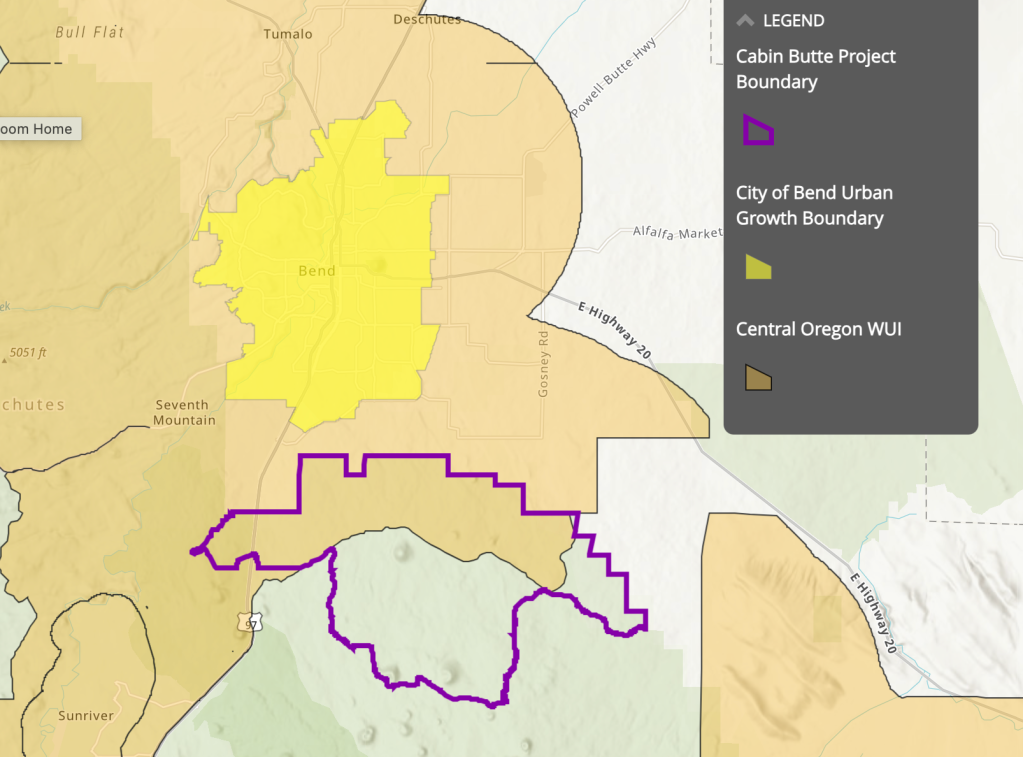Forest treatment will close off trails, caves south of Bend for at least one year
Published 5:45 am Thursday, January 30, 2025

- Cabin Butte Restoration Project
A large-scale forest restoration project southeast of Bend is planned to start in May, cutting off some 34,600 acres of the Deschutes National Forest for at least a year.
The Cabin Butte Vegetation Management Project, located south of Bend, will restrict access to the area while crews operate heavy machinery, conduct prescribed burns and clean up hazardous materials. Thinning, mowing and brush removal work in the project area are expected.
The work is part of the Forest Service’s Wildfire Crisis Strategy, which seeks to mitigate the possibility of fire in the wildland-urban interface. The one year timeframe allotted for the project could be extended based on its progress, the Forest Service said.
The most recent large fire in the area was the 1996 Skeleton Fire, which destroyed 19 homes and burned over 17,700 acres. Fuels treatment in the area occurred in 2021.
“Implementation of the project will maintain those previous treatments and continue to improve forest resilience against large-scale disturbance events,” said Kaitlyn Webb, a spokesperson for the Deschutes National Forest.
Impacted areas include Horse Butte Trailhead, Coyote Butte Off-Highway-Vehicle area, Bessie Butte Trailhead, Boyd Cave and a handful of rock pits used for recreational shooting. Wildlife in the area includes mule deer, golden crested ground squirrels, Townsend chipmunks and red-tailed hawks. The occasional pronghorn antelope is sometimes spotted.
“It’s a pretty special spot for both locals and tourists,” said Courtney Braun, co-owner of Bend-based Wanderlust Tours.
Signs will be posted at closure boundaries and Forest Service staff will enforce compliance. According to a statement from the Forest Service, violators of the closure could face fines up to $5,000, jail for a year, or both.
While this portion of the Deschutes National Forest doesn’t get the same number of visitors as places on the Cascade Lakes Highway or Newberry Crater, many people do visit Cabin Butte area trails for hiking and biking opportunities. The caves in the area are also popular and offer cool respite in the summer months.
Braun says the public will be missing out on some special wilderness areas during the closure.
“It’s an incredible space that shows the diversity of our region’s ecosystems. Just right east of town is a full-on, High Desert, sagebrush landscape. Getting to share that with folks is incredible. Bessie Butte is a popular hiking spot for tours and there is also a GPS eco-challenge that operates in the area.
The order also prevents Braun from running popular caving and hiking tours in the area.
“It’s going to be pretty hard on Wanderlust. It closes off access to both caves that we guide in. We don’t know what happens going forward,” she said.
Braun said she plans on speaking with the Forest Service to see if an agreement can be struck to allow public access to the area’s caves and top trails.
She said it’s important to show support for the Forest Service and its work to keep the community safe, but she is looking for compromise too.
“We are hoping we can find a way to operate in that area in some capacity,” she said. “I hope they can understand the detriment this would cause to the local and tourism community if we don’t have access to that area, on some level.”
The closure impacts day use and overnight camping. The China Hat area, used as a long-term camping area for unhoused people, will be cleared before work begins. The Forest Service said it is working with local governments and nonprofit organizations to prepare people living in unauthorized encampments for the closure.
Webb says when the area opens up again, law enforcement officers will ensure that local laws in the Cabin Butte area are followed, including a 14-day stay limit.
More information on the project can be directed toward the Bend-Fort Rock Ranger District at 541-383-5300.






